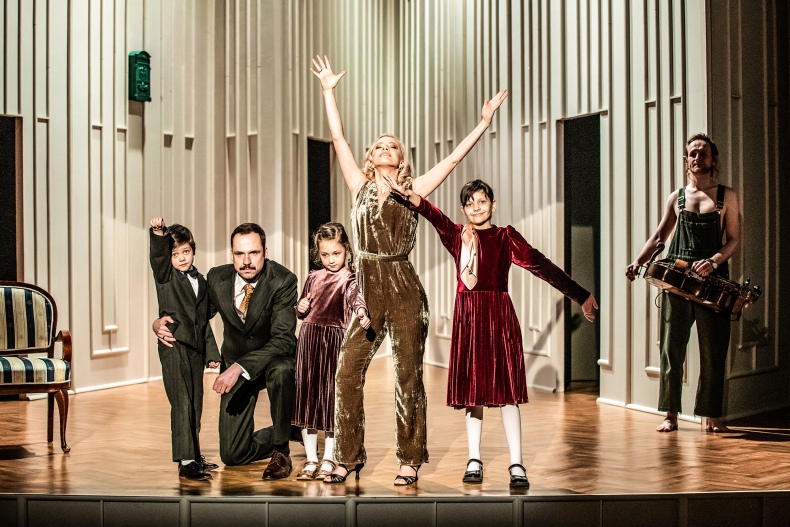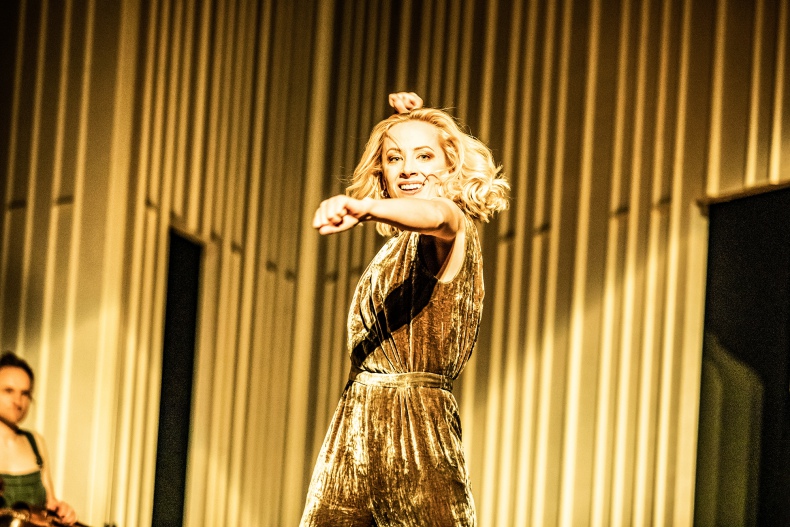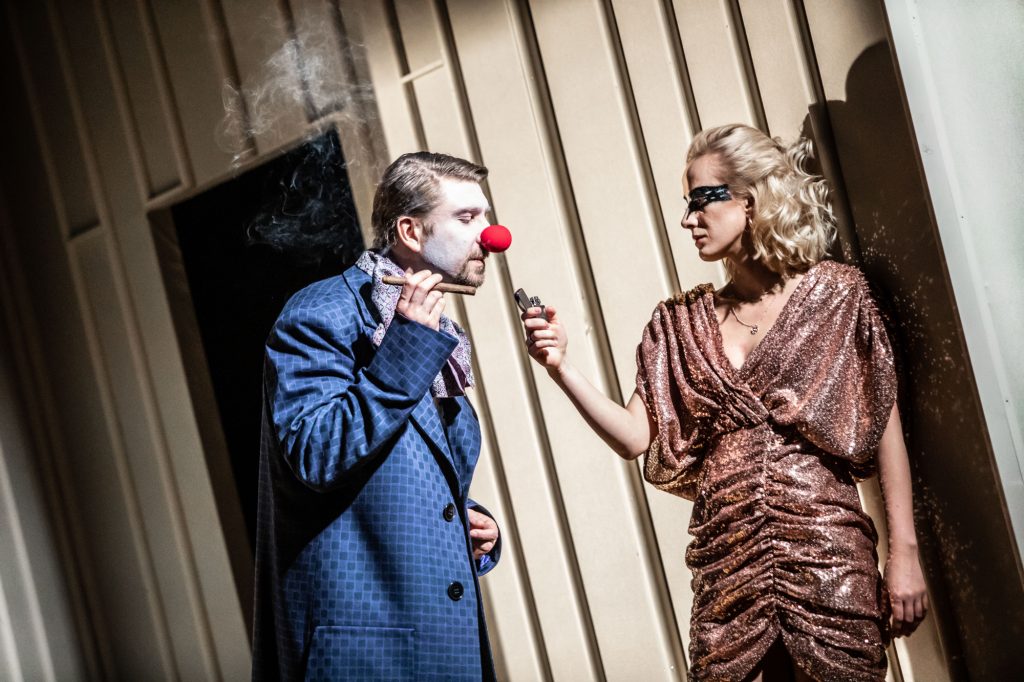Events
Henrik Ibsen
translated by Anny Marciniakównej
Kuba Kowalski
DIRECTOR'S ASSISTANT:Marta Ledwoń
Cast:Edyta Ostojak – Eleonora Helmer
Daniel Dobosz – Torvald Helmer
Marta Ledwoń – Kristine Linde
Wojciech Rusin – Rank
Daniel Salman – Krogstad
Magdalena Sztejman – Pani Maria
Ignacy Bigelmajer, Lilianna Bigelmajer, Marcelina Nowacka – troje dzieci Helmerów
Kornelia Dzikowska
Choreographed by:Szymon Dobosik
Music:Lubomir Grzelak
Lights:Damian Pawella
INSPITIONER:Małgorzata Bigelmajer
Live music:Robert Jaworski
PREMIERE:20.03.2021
Henrik Ibsen’s Doll House – often staged under the title Nora – is widely regarded as the first openly feminist text in drama history. And although more than one hundred and forty years have passed since the premiere, the finale to which the play is consistently heading is still difficult for us to accept. In the last scene of the drama, Nora definitely leaves her husband and children, because only alone can she understand who she really is. The role of wife and mother, which she has successfully played for many years, turns out to be limiting and false. Eleanor can no longer play Burrow, because she simply doesn’t believe in her, just as her perception of her husband and the world around her changes dramatically. Ibsen sets the plot of his play on the three days of Christmas and shows us a completely secular, feminist “revival” of his protagonist. Nora’s awakening, the gradual recognition of the mechanisms by which she acted and the gestures she repeated unknowingly, inevitably led her to abandon her family and eject herself beyond the margins of society. There is no easy and joyful freedom here, no kitsch of emancipation – Ibsen’s drama is one of the most beautiful stories of a deep but painful transformation. Nora comes out scarred, uncertain, without a name, but she walks harder on the ground and speaks in a voice she is aware of. Nowadays, full of populist lies and media misinformation, I see a great need for a story about a woman who finds the courage to look in the mirror and strike out for independence.
Kuba Kowalski – director, playwright. He studied sinology at the University of Warsaw and the National Taiwan Normal University in Taipei, Taiwan, and theater directing at the PWST L. Solski in Krakow. He was Krystian Lupa’s assistant at work on the play Zarathustra by Fryderyk Nietzsche at the Stary Theater in Krakow. He directed, among others: The Disquietes of Törless, a pupil of R. Musil (Dramatyczny Theater in Warsaw), E. Darley’s Once (The S. Jaracz Theater in Olsztyn), The Cat on the Hot Tin Roof of T. Williams and Wichrowe Wzgórza (Studio Theater in Warsaw), Jarosław’s Intimate Life (Wybrzeże Theater in Gdańsk). He has directed performances twice at the Teatr im. Osterwy – Pani Bovary and the Devil and a bar of chocolate. He prepared an open-air spectacle GRILL / combat seething hot based on Pastoral by A. Hertzówna (Warsaw Uprising Museum) and a sound installation by Fryderyk Chopin. A personal blanket based on the composer’s letters with music by Sławek Kupczak (Lower Garden of the University of Warsaw Library).


